![]()
Ceramic Water Filter Cartridges

Canada’s Premium Ceramic Filter Cartridges for over 60 years!
- 0.3 micron absolute
- Consistent & reliable performance
- Cleanable & reusable up to a 100 times
- Silver impregnated media
- Flows at over 1 GPM
- Safe materials
- For use with Rainfresh systems only
- Certified to NSF/ANSI 53
-
Click to buy online or in store at:
Also available in store at the following retailers:




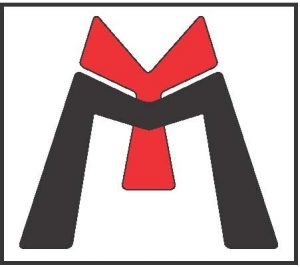



Not all models are available at all locations/retailers. If you questions regarding availability of a particular model, please call your local store or Rainfresh support.
-
Rainfresh ceramic water filter cartridges are very fine micro-filtration cartridges that are designed to remove coliform and other pathogenic bacteria (such as E. coli), parasites, cysts and fine particles down to 0.3 micron . This makes them an excellent choice for use with untreated waters such as lake, river or well water to deliver clean, safe and pure drinking water.
Rainfresh ceramic water filter cartridges offer unparalleled performance in the production of safe drinking water. Independently tested, they remove > 99.99999% of harmful bacteria and >99.95% of protozoan cysts (such as Cryptosporidium & Giardia). These levels exceed the removal parameter levels for bacteria and cyst from the U.S. EPA Guide Standard and Protocol for Testing Microbiological Water Purifiers.
Manufactured in Canada to exacting standards, our unique process maximizes the use of micro-porous diatomaceous earth to provide high efficiency filtration of particulates as small as 0.3 micron s in size while allowing maximum flow. Silver impregnation provides a self-disinfecting action, eliminating the need for boiling cartridges for sterilization. Models 1M and 1S also incorporate activated carbon in the core to reduce
chlorine , taste and odour.Rainfresh ceramic water filter cartridges are cleanable and re-usable up to a 100 times, making it an economical and environmentally friendly product.
PERFORMANCE
- Reduce > 99.99999% bacteria including E. coli and bacteria that cause diseases such as typhoid, cholera, dysentery etc.
- Reduce > 99.95% parasitic cysts (such as Cryptosporidium & Giardia)
- Reduces > 98% chlorine, taste, odour
- Reduces >99.99% sediment as small as 0.3 micron
FEATURES
- Filters down to 0.3 micron absolute
- Silver impregnated – no need to boil cartridge
- Cleanable and reusable up to 100 times
- Solid block activated carbon core for chlorine, taste and odour reduction
- Includes cartridge thickness gauge and scrub pad for cleaning
FOR USE WITH
- Rainfresh 1M ceramic cartridge is designed for use with Rainfresh UCS2, UCS3, FC000/1M, UC000/1M and CT1M Drinking Water Systems. Not designed for use with other systems. Also for use with Rainfresh DS2 and DS3 Drinking Water Systems if double O-ring adapter is replaced with DS2 adapter.
- Rainfresh 1S ceramic cartridge is designed for use only with Rainfresh Drinking Water System 1 (model SST)
INSTALLATION
- Installs with adapter facing up. See product manual for details
CARTRIDGE LIFE
- 1,000 US Gal or 1 year of use
- Available at most retail stores in Canada. Click on the “Where to buy” tab for list of retailers
TESTING AND CERTIFICATION
- Rainfresh ceramic cartridges are a certified component tested by CSA International to NSF/ANSI 53 for reduction of cysts and to NSF/ANSI 42 for reduction of chlorine, taste and odour
-
What are Ceramic Water Filter Cartridges?Ceramic Water filter cartridges are very fine micro-filtration cartridges that are designed to remove coliform bacteria (such as E. coli), parasites, cysts and fine particles down to 0.3 micron absolute. Ceramic water filter cartridges are cleanable and reusable, making them an excellent choice for use with untreated waters such as lake, river or well water.Are all ceramic cartridges the same?Not at all. Rainfresh ceramic water filter cartridges are manufactured in Canada to exacting standards and have a micron rating of 0.3 micron absolute – the tightest ceramic cartridges in the world!!. What’s more – they are certified to the highest industry standards – NSF/ANSI 53 and 42, which include testing for material safety & performance.Our ceramic water filter cartridges are designed for use with Rainfresh water filter systems only. For custom configurations, or for use with other systems, please contact us.
Have more questions? Enter you own question below and our customer service will get back to you within 24 hours.
-
Rainfresh ceramic water filter cartridges are very fine microfiltration cartridges that are designed to remove coliform and other pathogenic bacteria (such as E. coli), parasites, cysts and fine particles down to 0.3 micron . This makes them an excellent choice for use with untreated waters such as lake, river or well water to deliver clean, safe and pure drinking water.
Rainfresh ceramic water filter cartridges offer unparalleled performance in the production of safe drinking water. Independently tested, they remove > 99.99999% of harmful bacteria and >99.95% of protozoan cysts (such as Cryptosporidium & Giardia). These levels exceed the removal parameter levels for bacteria and cyst from the U.S. EPA Guide Standard and Protocol for Testing Microbiological Water Purifiers.
Manufactured in Canada to exacting standards, our unique process maximizes the use of micro-porous diatomaceous earth to provide high efficiency filtration of particulates as small as 0.3 micron s in size while allowing maximum flow. Silver impregnation provides a self-disinfecting action, eliminating the need for boiling cartridges for sterilization. Models 1M and 1S also incorporate activated carbon in the core to reduce
chlorine , taste and odour.Rainfresh ceramic water filter cartridges are cleanable and re-usable up to a 100 times, making it an economical and environmentally friendly product.
PERFORMANCE of ceramic water filter cartridges
- Reduce > 99.99999% bacteria including E. coli and bacteria that cause diseases such as typhoid, cholera, dysentery etc.
- Reduce > 99.95% parasitic cysts (such as Cryptosporidium & Giardia)
- Reduces > 98% chlorine, taste, odour
- Reduces >99.99% sediment as small as 0.3 micron
FEATURES of ceramic water filter cartridges
- Filters down to 0.3 micron absolute
- Silver impregnated – no need to boil cartridge
- Cleanable and reusable up to 100 times
- Solid block activated carbon core for chlorine, taste and odour reduction
- Includes cartridge thickness gauge and scrub pad for cleaning
FOR USE WITH
- Rainfresh 1M ceramic cartridge is designed for use with Rainfresh UCS2, UCS3, FC000/1M, UC000/1M and CT1M Drinking Water Systems. Not designed for use with other systems. Also for use with Rainfresh DS2 and DS3 Drinking Water Systems if double O-ring adapter is replaced with DS2 adapter.
- Rainfresh 1S ceramic cartridge is designed for use only with Rainfresh Drinking Water System 1 (model SST)
INSTALLATION
- Installs with adapter facing up. See product manual for details
ceramic water filter cartridges LIFE
- 1,000 US Gal or 1 year of use
- Available at most retail stores in Canada. Click on the “Where to buy” tab for list of retailers
TESTING AND CERTIFICATION
- Rainfresh ceramic water filter cartridges are a certified component tested by CSA International to NSF/ANSI 53 for reduction of cysts and to NSF/ANSI 42 for reduction of chlorine, taste and odour
-
Be the first to review “Ceramic Water Filter Cartridges” Cancel reply


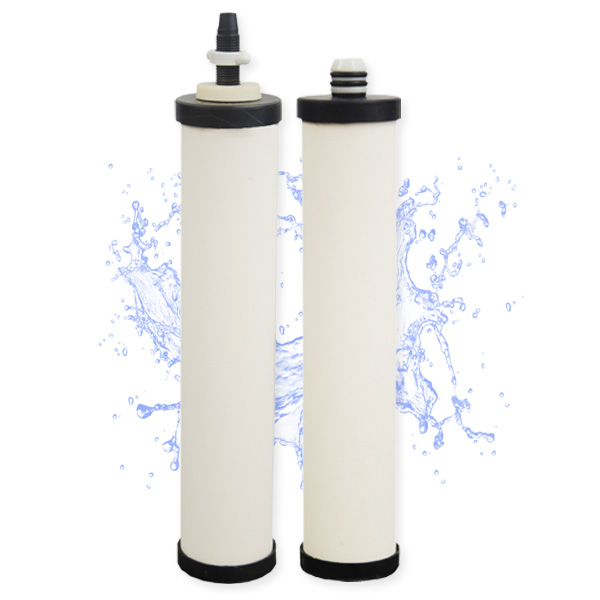
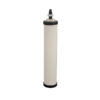

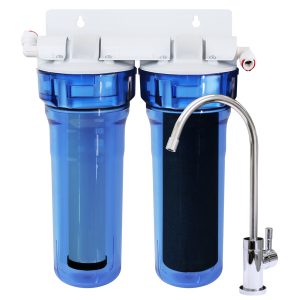
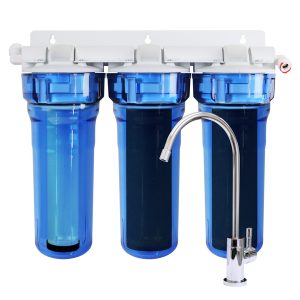
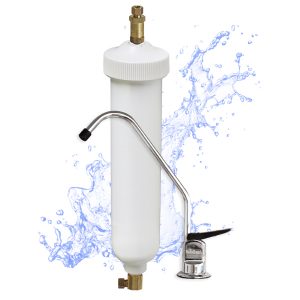
There are no reviews yet, would you like to submit yours?